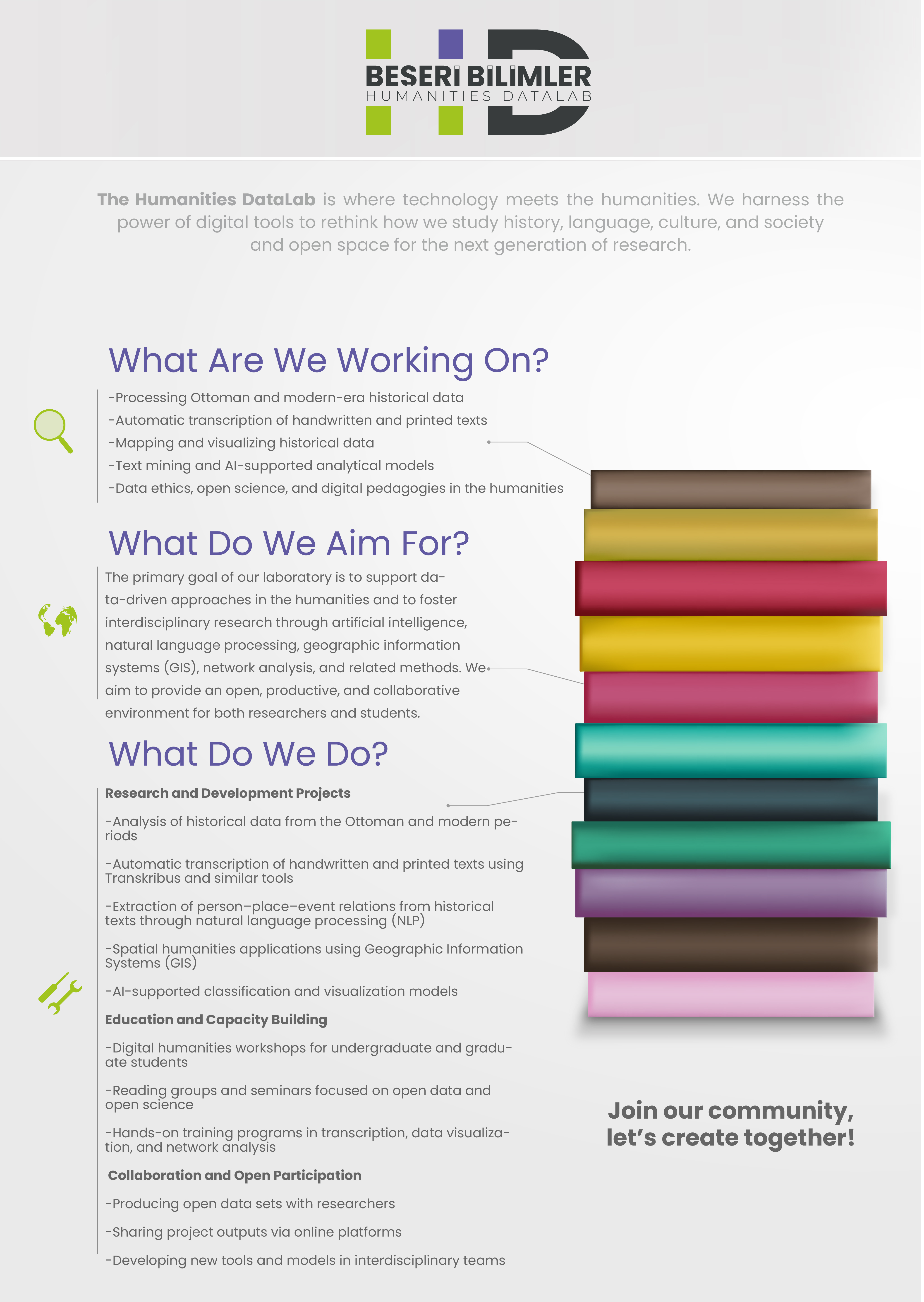 |
Operating in the field of digital humanities, the Humanities DataLab was established to rethink and transform research in history, literature, language, culture, and society through the possibilities offered by digital technologies. The Lab serves as a methodological bridge between technology and the humanities, laying the groundwork for new-generation research approaches and data-driven analytical methods. Its areas of work include the processing of Ottoman and modern historical data, automatic transcription of handwritten and printed texts, text mining, the development of AI-supported analytical models, and the mapping and spatial visualization of historical data. The Lab’s primary goal is to promote a culture of data-driven thinking in the humanities and to build a productive and collaborative research ecosystem grounded in the principles of open science, digital ethics, and interdisciplinarity. |
What We Work On
- Processing Ottoman and modern historical data
- AI-based automatic transcription of handwritten and printed texts
- Mapping and visualization of historical data
- Text mining and analytical modeling
- Data ethics, open science, and digital pedagogy in the humanities
Our Objectives
The main goal of the Lab is to support data-driven approaches in the humanities and to encourage interdisciplinary production through methods such as artificial intelligence, natural language processing (NLP), geographic information systems (GIS), and network analysis.
We aim to provide an open, productive, and collaborative environment for both researchers and students.
What We Do
Research and Development Projects
- Analysis of Ottoman and modern historical data
- Automatic transcription of handwritten and printed texts using AI tools such as Transkribus
- Extraction of person–place–event relations in historical texts through NLP
- Spatial humanities applications using GIS
- AI-supported classification and visualization models
- Development and coordination of national and international research projects in digital humanities
- Strengthening knowledge sharing through the production of scientific publications, reports, and open-access datasets
Education and Capacity Building
- Digital humanities workshops for undergraduate and graduate students
- Reading groups and seminars on open data and open science
- Hands-on training programs that develop skills such as transcription, data visualization, and network analysis
Collaboration and Open Participation
- Producing open datasets in collaboration with researchers
- Sharing project outcomes through online platforms
- Developing new tools and models with interdisciplinary teams
Join our community—let’s create together!

This page updated by Nüfus ve Sosyal Araştırmalar Enstitüsü on 27.02.2026 22:51:30
